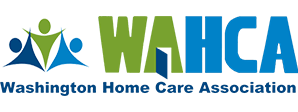The emergence of the COVID-19 pandemic in 2019 sent shockwaves across the globe, presenting challenges that were unprecedented in recent history. Washington, like many other states in the U.S., felt the weight of the pandemic – from its initial outbreak to the subsequent economic and social upheavals. The development, approval, and distribution of the COVID-19 vaccines became crucial for the state's return to normalcy. This article delves into Washington's response to the COVID-19 vaccine rollout and its implications.
A Race Against Time: Vaccine Development
The rapid development of the COVID-19 vaccines was a testament to the leaps of science, collaboration, and investment. Researchers, pharmaceutical companies, and governments worked tirelessly to compress what was normally a decade-long process into less than a year. In this race, Washington-based organizations and researchers played pivotal roles in the development and trials of these vaccines.
Distribution and Rollout in Washington
The state of Washington took a phased approach to vaccine distribution, prioritizing frontline healthcare workers, elderly residents, and those with underlying medical conditions in the initial stages.
Governor Jay Inslee's office, in collaboration with the Washington State Department of Health, established mass vaccination sites, mobile clinics, and partnered with pharmacies and community health centers to ensure widespread accessibility.
Equity was a significant concern. Efforts were made to reach communities disproportionately affected by the virus, including Black, Indigenous, and People of Color (BIPOC) populations. Mobile vaccination units and community engagement campaigns sought to bridge gaps in vaccine accessibility and information dissemination.
Overcoming Hesitancy
Despite the availability of vaccines, vaccine hesitancy remained a challenge. Some individuals expressed concerns about the vaccine's rapid development or potential side effects, while others were influenced by misinformation circulating online.
To counter this, the state launched public awareness campaigns featuring healthcare professionals, community leaders, and recovered COVID-19 patients. These initiatives aimed at debunking myths and providing transparent information about the vaccine's safety and efficacy.
Current State and Future Implications
As of mid-2023, a significant proportion of Washington's population has been vaccinated. The benefits are evident in the declining number of COVID-19 cases, reduced strain on healthcare systems, and gradual resumption of economic and social activities.
The lessons from the vaccine rollout in Washington are multifaceted. The importance of preparedness, collaboration, and public trust in science and leadership became all the more evident. Furthermore, the pandemic underscored the necessity of addressing systemic health disparities to ensure the health and well-being of all communities.
The COVID-19 vaccine in Washington served as a critical tool in the fight against a once-in-a-century pandemic. While the challenges were numerous, the collective efforts of the state's leadership, healthcare community, and its residents resulted in a beacon of hope amidst the storm. The experiences from this period will undoubtedly shape public health strategies and policies for future challenges.
Looking for a location near you to get your COVID-19 vaccine in Washington?
